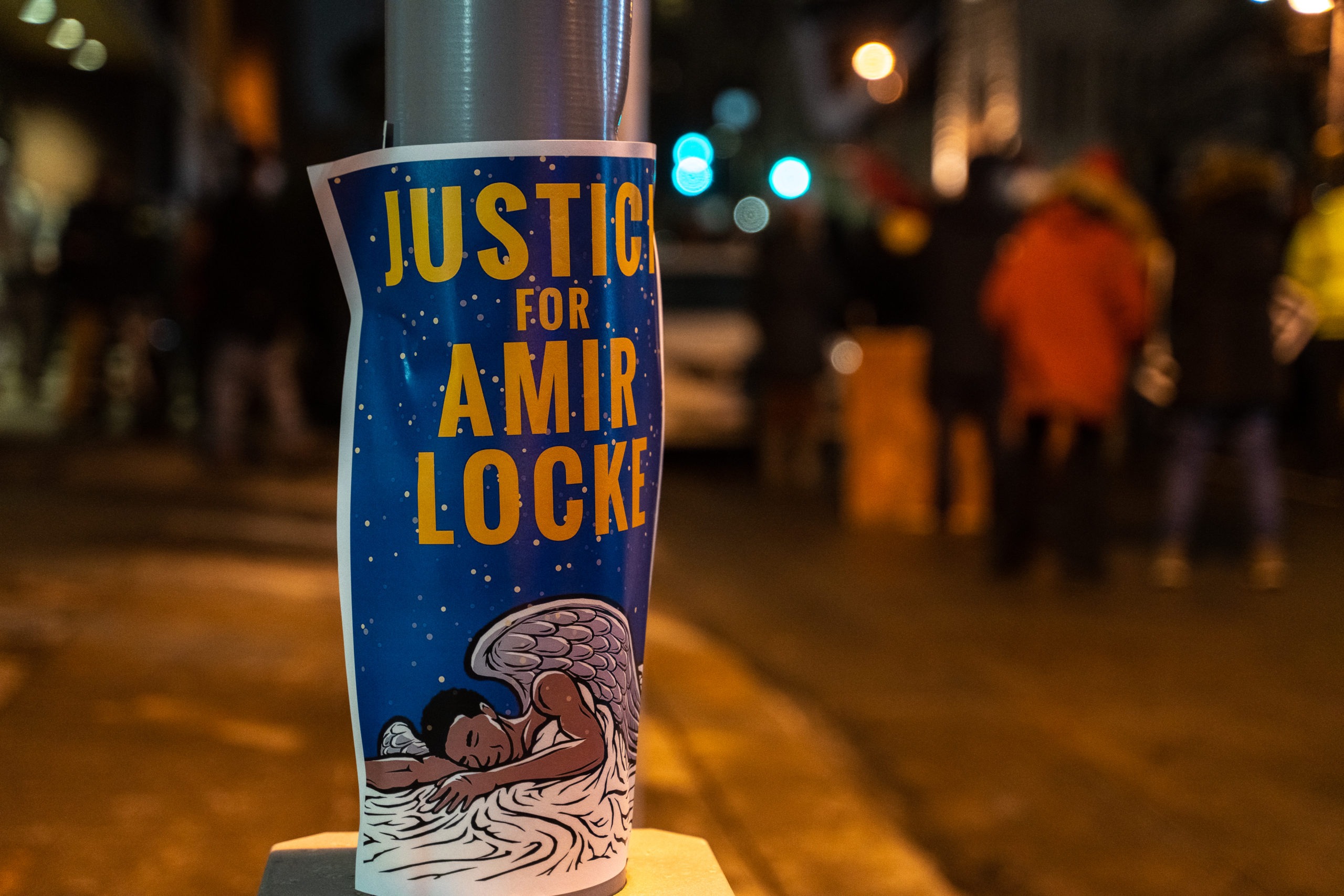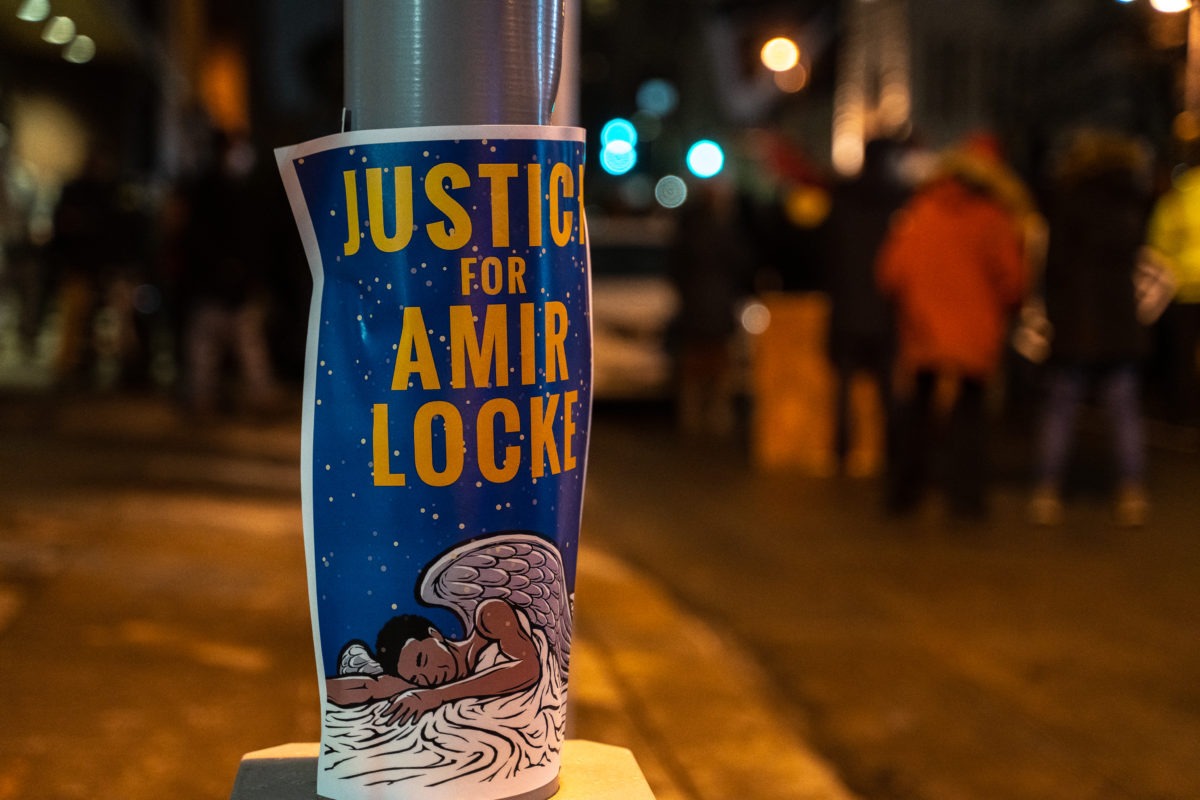Newsletter
How Could Police Shootings Keep Happening After We Did Nothing To Stop Them?
The specific ways in which Frey and other local leaders failed to respond to Floyd’s death seem frankly astonishing when laid out on paper. But the story of this failure is, in fact, the only future offered by the centrist “police reformer” set.

We’re back! Thanks for bearing with us while we paused this newsletter to prioritize creating a detailed roadmap for The Appeal in the coming year. As a worker-led outlet, we’re collectively building the newsroom we envision, and we’re excited about what the future holds for our team and our journalism.
There’s one day left to take our our three-minute survey for a chance to win $50. We want to know what you like — or don’t like — about our newsletter.
Everyone who responds to the survey will get a chance to win a $50 Visa gift card. We will pick one responder at random on February 16 to select the winner. The winner will be sent the gift card via email.

How Could Police Shootings Keep Happening After We Did Nothing To Stop Them?
by Jerry Iannelli, The Appeal
In the early morning hours of February 2, Minneapolis Police SWAT officers, with body-worn cameras running, burst into an apartment and found 22-year old Amir Locke lying under a blanket on his couch. Locke, seemingly unsure who was breaking into the apartment, was clutching his own legally purchased and registered firearm. Police had apparently been looking for someone else at that address, but upon seeing Locke potentially prepared to defend himself against unknown intruders in the middle of the night, an officer opened fire and killed him. Now, less than two years after a Minneapolis police officer murdered George Floyd, thousands of the city’s residents are taking to the streets again, chanting the name of another person killed by the state, and once more asking if politicians will do anything at all about it.
For many of these protesters, this must feel like déjà vu. Not long ago, they were marching on the same city streets, protesting against the same police department, the same mayor, the same governor, and much of the same political class in Washington, D.C. And in that time, they’ve watched as supposedly reform-minded politicians — especially Minneapolis Mayor Jacob Frey — have made a staggering series of failures and gutless decisions that have led us here once again.
The specific ways in which Frey and other local leaders failed to respond to Floyd’s death seem frankly astonishing when laid out on paper. But the story of this failure is, in fact, the only future offered by the centrist “police reformer” set.
In May 2020, Frey stood in front of the public and said that “being Black in America should not be a death sentence,” calling Floyd’s killing “a clear reminder of just how far we have to go” as a society. In June 2020, then-Minneapolis Police Chief Medaria Arradondo pulled out of the city’s scheduled police union contract negotiations, stating that he wanted to study ways in which the city could revamp the contract to reform the department.
But by September, the tone from city hall had changed. That month, Frey shut out a local police-reform group, Minneapolis for a Better Police Contract (MBPC), from the contract negotiation process entirely, before ultimately ignoring all of the group’s recommendations for changes to departmental policy, including ending indemnification for cops who commit violence off-duty. (In June 2021, MBPC sued the city for locking the public out of the negotiation process. That case remains open. In court motions, the city has denied any wrongdoing.)
In November 2020, eight months after police in Louisville, Kentucky, killed Breonna Taylor in a “no-knock” raid, Frey and MPD announced that Minneapolis was restricting the use of “no-knock” warrants, except in specific circumstances — “like a hostage situation,” Frey’s office told the media at the time. But Frey and MPD never actually enacted any sort of meaningful ban: According to the Star-Tribune, MPD continued to apply for and execute no-knock raids, even as Frey was bragging about banning them in his own campaign literature. In April 2021, Frey was forced to apologize to a woman after Minneapolis cops burst into her house in another botched “no-knock” raid.
By December 2020, Frey had dropped all pretense that he was interested in reining in the police department. That month, as city council members debated shrinking the police force’s future size from 888 officers in 2022 to 750, Frey threatened to veto the entire city budget if any cuts were made to police staffing levels. Frey’s threats won out, and the city shifted just a few million dollars out of the roughly $170 million 2022 police budget toward funding a set of trial mental health response teams. Then-city councilmember Lisa Bender tweeted that Frey “fought us every step of the way” as the council sought to build up alternatives to policing for certain services.
In the wake of Locke’s shooting, Frey is once again facing the predictable consequences of his own inaction. He’s halfheartedly apologized for previously claiming he’d banned no-knock raids — an oversight he chalked up to his failure to use the “necessary precision or nuance.” Now, Frey says, he’s actually going to do the thing he said he’d already done, by placing an only-slightly-less-toothless moratorium on no-knock raids. He’s also attempted to reiterate his commitment to police reform, insisting he is “dead serious about seeing the necessary changes through” — though he was not serious enough to save Locke from an entirely preventable death.
But the failures go much deeper than Frey. Minnesota lawmakers in June 2021 passed a paltry series of “no-knock raid” reforms that did little to scale back these dangerous tactics. The bill didn’t stop Locke’s killing. Now lawmakers say they will consider further restrictions on no-knock warrants, but even if they pass — a big “if” — it may come as little comfort to Locke’s family.
This level of futility is what we’ve come to expect from so-called “reformers.” At the federal level, Democratic lawmakers, including Senate Majority Leader Chuck Schumer and House Speaker Nancy Pelosi, responded to Floyd’s murder by wearing kente cloth and kneeling in the Capitol — a shameless and deeply weird display that led to exactly zero concrete change.
For the past two years, Congress has rejected the “George Floyd Justice in Policing Act” amid opposition from Senate Republicans and some moderate Democrats. The bill is what many reasonable people might consider “the floor” — with measures to end the “qualified immunity” legal standard that shields police from lawsuits, create a national officer misconduct database, fund local misconduct investigations, and lower the legal standard to convict officers of misconduct. But even those modest proposals have proven a nonstarter, as did a competing, Republican-proposed bill to ban no-knock warrants.
So, here we are yet again. For nearly two years, America’s political leaders have sworn that they would act to end the waves of police brutality and racist violence that have plagued this nation for more than a century. And yet, as police killings continue at a record pace, they’ve maintained that they can accomplish this objective with a series of small, sensible, and somehow still substantive changes to the institution of policing in America.
But the last few years have revealed that the moderate American police “reform” movement is less concerned with keeping police violence in check than it is with beating back the Left and preserving their own tenuous monopolies on power and discourse. After Democrats underperformed in the 2020 elections, centrists wrongly blamed the “defund” movement for going “too far” and scaring voters. Then, after media outlets ginned up a bad faith “crime wave” panic last summer, numerous Democrats who’d previously adopted the language of police reform — such as San Francisco Mayor London Breed — fully reversed course, embracing tough-on-crime police tactics, and even advocating for a return to the war on drugs.
In May 2021, Frey himself baselessly blamed the “defund” movement for contributing to rising crime in his city, even though Minneapolis did very little to defund its police department, and despite the fact that similar crime trends were seen in cities across the nation, with no link to police funding. As politicians have coalesced around scapegoating the “defund” movement for all sorts of societal ills, they have, by and large, abandoned even the most modest police reform initiatives they claimed to care about less than two years ago.
But this is, quite simply, the politics of police “reform” in action. To push back on the supposedly “radical” ideas of “abolition” or “defunding,” proponents of reform have rallied behind a brand of reactionary politics that guarantees no outcome other than more dead Americans like Amir Locke.
In the news
Contact us at newsletter@theappeal.org so we can feature your work here.
Minneapolis City Council member Robin Wonsley Worlobah is calling on Mayor Jacob Frey to resign in the wake of Amir Locke’s killilng. She writes that after yet another incident of preventable police violence, it’s clear that the police department must be replaced by a new Department of Public Safety. [Robin Wonsley Worlobah / Teen Vogue]
Despite overwhelming public opposition, in September, the Atlanta City Council approved a multi-million dollar police training facility that opponents call Cop City. Writer and activist Micah Herskind takes a deep dive into the prison industrial complex in Atlanta, explaining how it has led the city’s elected leaders to embrace Cop City and ignore their constituents’ demands. [Micah Herskind / The Mainline] See also: Check out The Appeal’s recent story on Cop City, by Aja Arnold.
Speaking of Cop City, former NYPD captain and current New York City Mayor Eric Adams has announced plans to dramatically expand the police department’s use of surveillance technology, including facial recognition software that has been shown to be racially biased and inaccurate. [Sally Goldenberg and Joe Anuta / Politico]
A women’s federal prison in California is known as “the rape club” among incarcerated people and prison workers, according to an Associated Press investigation into FCI Dublin. Incarcerated people say correctional officers and the warden sexually abuse them, and threaten or punish people when they try to speak out. [Michael Balsamo and Michael Sisak / Associated Press]
The New Jersey Supreme Court ruled that juvenile offenses can count toward the calculation of a person’s three strikes. The case was brought on behalf of Samuel Ryan, who was convicted as a teenager in 1990 of two counts of armed robbery. Six years later, when he was convicted of two more armed robbery charges, he was sentenced to life without parole under the state’s three strikes law. [S.P. Sullivan / NJ.com]
With a federal ban on Pell Grant aid for incarcerated people set to lift next year, advocates worry that the prison profiteers behind predatory services like JPay and Securus are angling to make prison education their next cash cow. [Madison Pauly / Mother Jones]
Police officers are filling in for teachers in classrooms across Oklahoma, following an executive order that was intended to address a statewide teacher shortage. Cops are showing up to class armed, unmasked, and with no prior teaching experience. [Destinee Adams / Scalawag]
A trial began last week in the first known excessive force case against an on-duty San Francisco police officer. The trial is seen as a major test for District Attorney Chesa Boudin, who campaigned on efforts to rein in police abuse and misconduct. [Megan Cassidy / San Francisco Chronicle]
That’s all for this week. Feel free to leave us some feedback, and if you want to support our official relaunch, please donate here. Until next time, the work continues.
